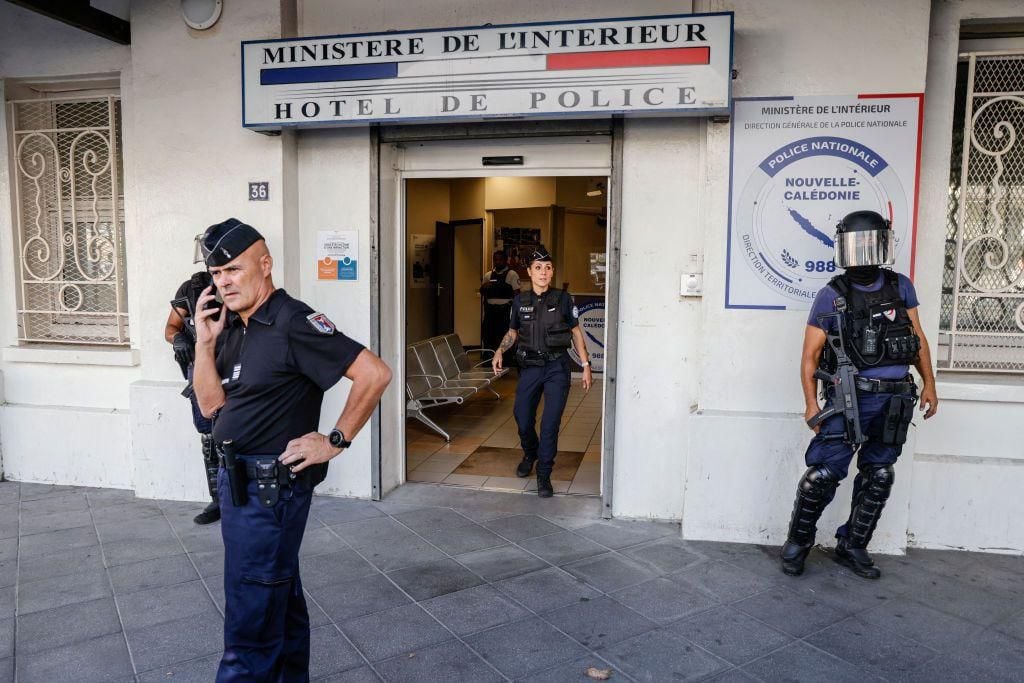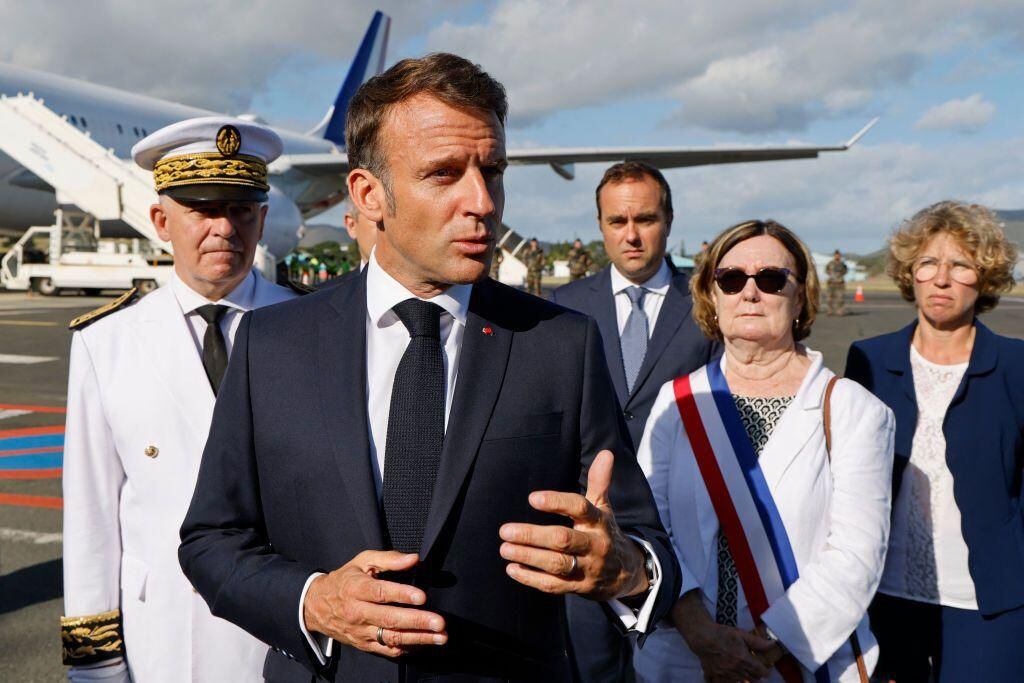New Caledonia live turbulent days.
This French territory made up of several Pacific islands has been the scene of violent protests for more than a week, with blocked streets, charred cars and closed and looted businesses.
LOOK: The “extreme” turbulence that left one passenger dead and 30 injured on a flight between London and Singapore
An electoral reform project triggered the outbreak of violence, which caused six deaths, two of them police officers, and hundreds of injuries, and forced a large number of tourists to be evacuated by air.
Authorities declared a state of emergency last Wednesday and French President Emmanuel Macron had to travel from Paris on a 24-hour flight.
Macron said in Noumea, capital of New Caledonia, that the territory is facing “an unprecedented insurrection movement” and announced that a police contingent of 3,000 men will remain in the territory as long as necessary.
The president promised that The controversial reform will not be approved for now and will re-analyze the situation in a month.
“We will give a few weeks to allow tensions to calm down and dialogue to be renewed to find a broad agreement”he claimed.
What is New Caledonia and why does it belong to France?
Located in the warm waters of the southwest Pacific, about 1,500 kilometers east of Australia, New Caledonia is an archipelago where around 270,000 people live.
The Kanak indigenous people live there, representing around 41% of the population, 24% of whom are of European origin, the majority of whom are French.
The New Caledonian Islands were discovered by British explorer James Cook in 1774.
In 1853, Emperor Napoleon III decided to annex it to France and until the beginning of the 20th century he used it as a penal colony where thousands of convicts were sent.
Have there been protests before in New Caledonia?
It’s not the first time that New Caledonia It is experiencing violent protests and the history of its membership in France has not been free from conflict.
In 1946, the archipelago officially became a French overseas territory.
But from 1970 onwards, after important nickel deposits began to be explored there, Tensions began to emerge between Paris and the Kanak independence movementsall in a context of inequalities between indigenous peoples and settlers of European origin.
Between 1976 and 1988, the resulting conflict claimed dozens of lives.
In 1998, the Nouméa Agreement was signed, by which France committed to granting greater autonomy and political participation to the Kanak indigenous people.
The agreement provided for the holding of three referendums to decide on New Caledonia’s independence, which was rejected in two votes, but pro-independence forces decided not to participate and deny the validity of the last one because it was held in 2021, in the middle of the coronavirus pandemic.

Why are there protests now in New Caledonia
The Nouméa agreement established that only those who lived in New Caledonia in 1998 and their descendants could vote in local elections.
The idea was for the Kanak to have greater representation, but in Paris it began to be perceived as an anti-democratic measure and last Tuesday The French Parliament voted in favor of a proposal that would recognize the right to vote for anyone who has lived in New Caledonia in the last 10 years.
Independence leaders fear that this will dilute the Kanak’s electoral weight and that the measure will hide an attempt by Paris to exercise more direct control over the territory. From Wednesday, incidents began to occur.
What can happen from now on

The French government has increased security deployment and President Macron said during his visit to Nouméa that restoring normality is “the absolute priority”.
New Caledonia has great strategic value for the president, who sees the territory as a platform to guarantee the French presence and control of nickel in a region where China is trying to gain a presence.
The Kanak and Socialist National Liberation Front (Flnks), the main pro-independence organization, rejects the constitutional reform proposal, but also calls for “calm and appeasement”.
The French government opened the door to dialoguewhich the Flnks consider an “opportunity” to ensure that “the demands of each and every one, including those protesting, can be heard and taken into account”.
The planned constitutional reform still has a long way to go and requires a joint vote by both chambers of the French Parliament.
The French government has promised that it will not come into force until at least the end of June.
Several of Macron’s allies asked him to suspend the reform. Sonia Lagarde, mayor of Noumea, who belongs to the president’s party, is one of them.
“We should take a break and calm things down. Things have gone too far,” he said.
Macron appears to have heard these requests by announcing that he will give more time to dialogue, but he was also clear by reaffirming the result of the last referendum in which independence was rejected.
During his visit to New Caledonia, he met with local leaders for and against independence and said that if both parties reached an agreement, a new referendum could be held on the territory’s status.
Source: Elcomercio
I am Jack Morton and I work in 24 News Recorder. I mostly cover world news and I have also authored 24 news recorder. I find this work highly interesting and it allows me to keep up with current events happening around the world.

:quality(75)/cloudfront-us-east-1.images.arcpublishing.com/elcomercio/C3CFNDY7IJBD7IPRA2MD4YFEMA.jpg)





